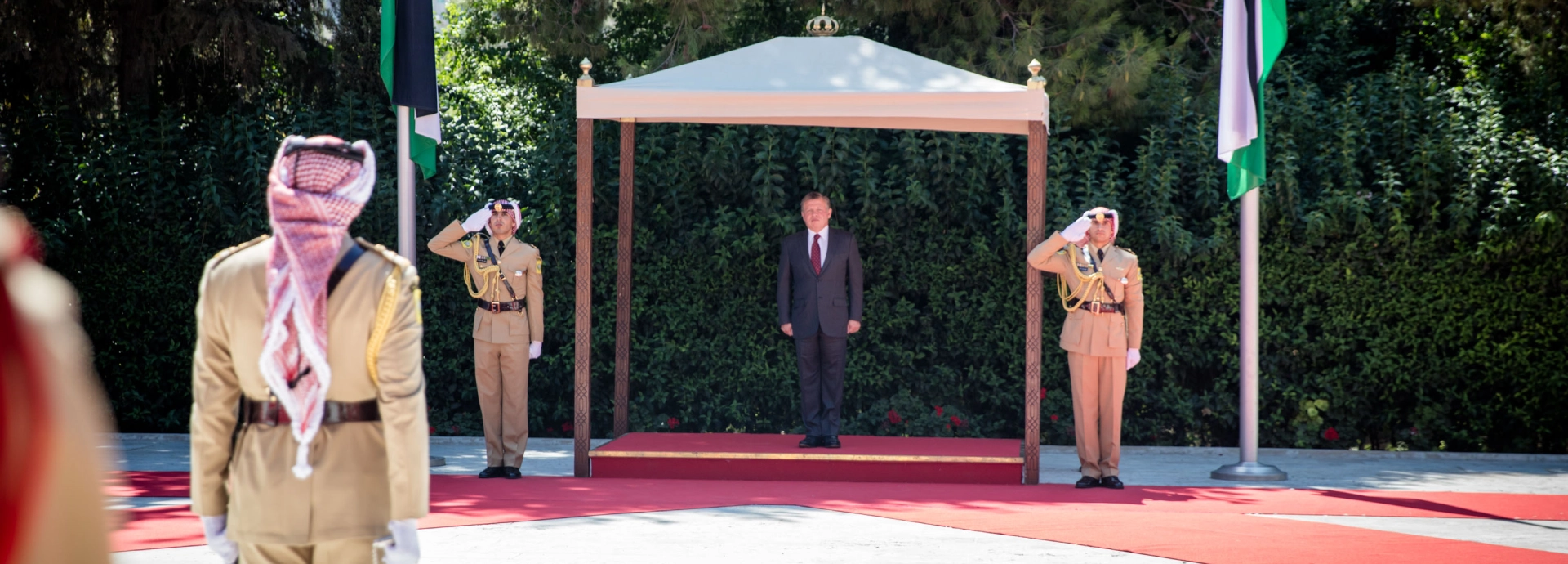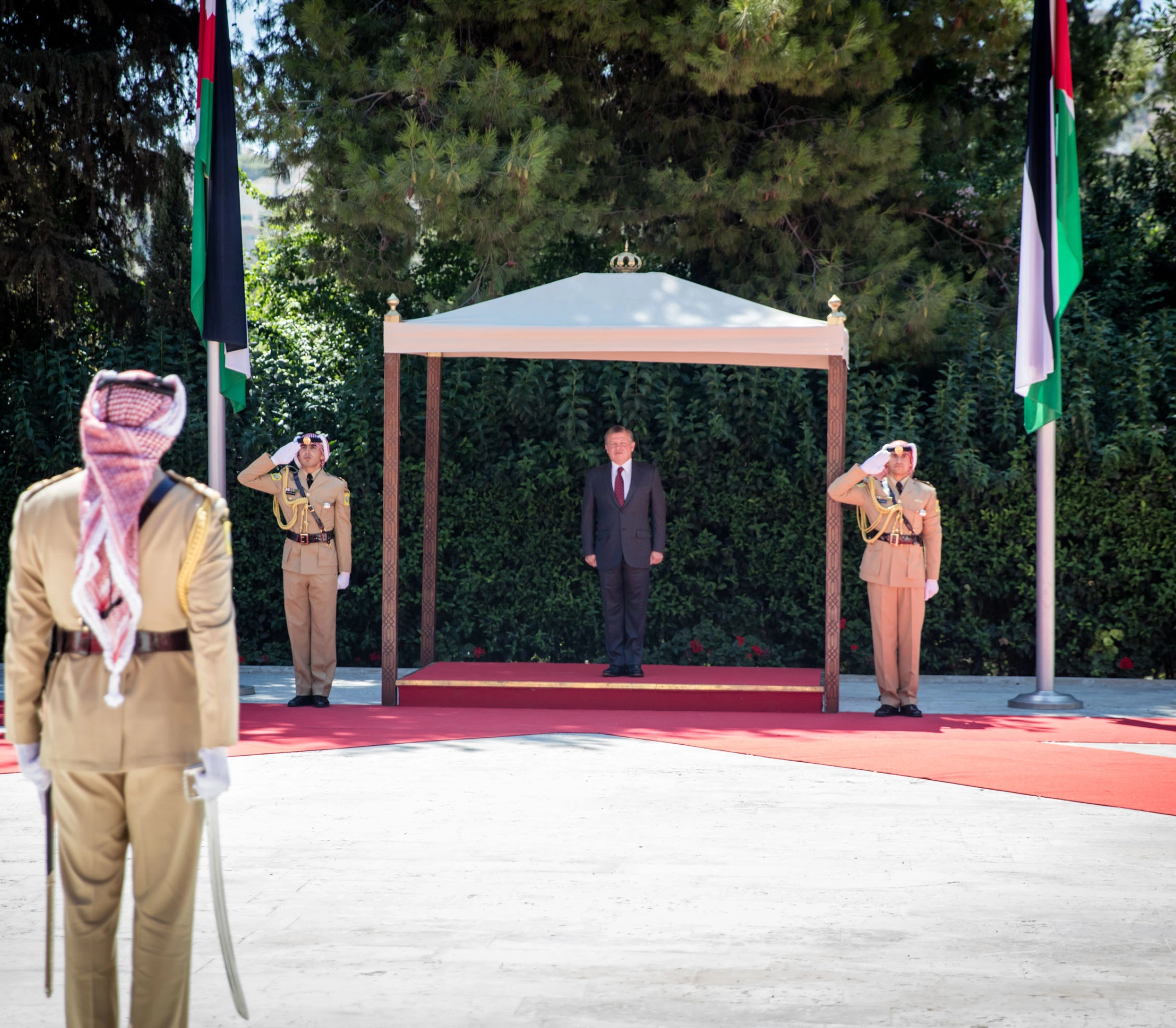

King arrives in Moscow on two-day working visit
10 February 2008
His Majesty King Abdullah arrived in Moscow on Sunday at the start of a two-day visit during which he is scheduled to hold talks with President Vladimir Putin on bilateral ties and regional issues, including ways to push forward the Middle East peace process.
In an interview with ITAR-TASS news agency on the eve of his visit, the King said Jordan's top priority is Middle East peace, beginning with the establishment of a viable, independent Palestinian state in the West Bank and Gaza, as well as supporting the security, stability and national reconciliation of Iraq and Lebanon.
Describing the conflict between Israel and the Palestinians as “the core conflict in our region”, His Majesty said “if the parties can arrive at a just, negotiated settlement, they will take our region one large step closer to security and stability”.
King Abdullah said the peace process that started in Annapolis is a positive development, stressing that the international community needs to remain engaged in the process.
“We know from experience that although the parties themselves have to take the tough decisions and do the negotiating, they have been unable to move forward without the support and involvement of the international community,” the King said in the interview.
Praising the “excellent” Jordanian-Russian ties, the King said he hopes to discuss with Putin cooperation in alternative energy fields, particularly the development of a nuclear energy programme, in view of the rising price of oil and its effect on the living standards of Jordanians.
“A Jordanian delegation visited Russia last year to discuss this, and I understand that a team of Russian experts will come to Amman this month to see how we can collaborate in nuclear energy development,” His Majesty told the Russian news agency.
“Jordan has launched its own nuclear energy programme, and Russian expertise will be a tremendous asset to its development and future success,” King Abdullah stressed.
The King, who will also meet First Deputy Prime Minister Dimitri Medvedev, highlighted Russia's involvement in the Middle East peace process.
“This role will be vital in the months to come as Palestinians and Israelis begin to discuss final status issues,” His Majesty told the agency.
The King, who is accompanied by Their Royal Highnesses Prince Feisal and Prince Ali, Royal Court Chief Bassem Awadallah and Director of the General Intelligence Department Lt. General Mohammad Dahabi, noted that his talks in Moscow are expected to cover cooperation in various economic fields, highlighting the numerous investment opportunities available in Jordan for Russian investors.
“We have built a strong investment climate. This has been complemented by the diversification of our export base, and numerous economic and structural reforms that have further boosted the contribution of the private sector to our economic growth, which in 2007 reached 5.8 per cent in the last three quarters,” the King said.
“We are shifting the focus now to a better distribution of development gains. We want all Jordanians to benefit from this growth and, at the same time, be participants in propelling the country's development,” His Majesty added, highlighting the “nationwide programme to establish special economic and/or development zones in the various governorates.”
King Abdullah cited the Aqaba Special Economic Zone as an example.
“The ASEZ was conceived as a special development area to create an economic engine of growth in the Aqaba region. It is based on a model of decentralized governance and built on the competitive attributes of Aqaba - tourism and logistics. We introduced world-class investment incentives and a central development vehicle that has created an environment conducive to investment and job creation. Its success has encouraged us to adapt and replicate this model throughout the country,” His Majesty told ITAR-TASS.
King Abdullah also referred to an agreement signed by the two countries last year when Putin visited Jordan on the promotion and protection of investment.
“… Once it takes effect, I hope it will have a substantial impact, because there are numerous opportunities for Russian investment in Jordan, especially in infrastructure projects and in the oil and gas industry,” the King said, noting that another agreement was signed between the Amman Chamber of Industry and the Moscow Chamber of Commerce and Industry to establish a joint business council.
In addition, the King expressed satisfaction with the level of cultural exchange and stressed that the two countries also enjoy “a high degree of security coordination”.
King Abdullah said that 2,000 students who are now studying in Russia will add to the currently 20,000 Russian speakers in the Kingdom.
This will help Jordan welcome more Russian tourists, the King said, noting that around 100,000 visited in 2006, many of them on religious pilgrimage.
King Abdullah also referred to the Amman Message, launched in 2004 to clarify the true image of Islam as a religion that rejects violence and promotes dialogue and constructive interaction with other cultures.
“The purpose of the Amman Message was to articulate clearly the principles and values of Islam, which have been misappropriated and distorted both by extremists in the Muslim world and extremists elsewhere. In the case of extremism in our part of the world, the principles of Islam have been twisted in order to justify acts of terrorism - which is entirely alien to Islam. These acts give extremists elsewhere a justification to vilify Islam as a religion that promotes violence and one that must be confronted. The Amman Message is an answer to both of them,” His Majetsy said.
Full Interview